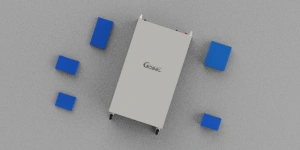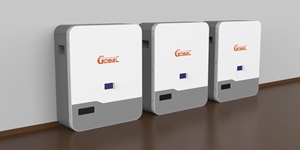LITHIUM ION BATTERY CAPACITY CALCULATION
Lithium Battery Supplier
Lithium Battery Supplier, LiFePO4 Battery Wholesale. One Stop Services.
-
Solution Spare Parts -
Solution Battery Module
Lithium-ion battery capacity calculation involves a series of complex mathematical formulas and algorithms to determine the precise energy storage capacity of a lithium-ion battery. This critical calculation is essential to ensure safe operation, reliable performance, and efficient energy storage. With the rapid growth of the lithium-ion battery industry, accurately calculating battery capacity has become a crucial aspect of designing, testing, and manufacturing these devices. The calculation itself is based on a combination of physical and chemical properties of the battery, including its size, shape, and material composition. Key factors taken into account include the battery's capacity ratings, discharge cycles, and capacity fade. By accurately predicting a battery's capacity, manufacturers can optimize their designs, minimize energy losses, and enhance overall system performance. One common method for calculating lithium-ion battery capacity involves the use of the Peukert's equation. This formula considers the battery's capacity rating, discharge current, and internal resistance to determine the available energy. The equation is expressed as: Capacity (Ah) = Peukert's Constant x (Discharge Current / Internal Resistance) Additionally, the Ah-Master equation and the R-C circuit model are also widely used in lithium-ion battery capacity calculations. These mathematical formulas simulate the battery's electrical behavior, enabling accurate predictions of its energy storage capacity. Accurate lithium-ion battery capacity calculation is vital for various industries, including electric vehicles, renewable energy systems, and consumer electronics. By leveraging advanced mathematical models and sophisticated software tools, designers and engineers can create more efficient, reliable, and sustainable battery solutions. In today's fast-paced, technology-driven world, accurate lithium-ion battery capacity calculation is essential for optimizing energy storage and reducing environmental impact. As the demand for advanced battery solutions continues to grow, the importance of accurate capacity calculation will remain a top priority for manufacturers, researchers, and engineers worldwide.

 EU Stock
EU Stock Poland Stock
Poland Stock Ukraine Stock
Ukraine Stock  USA Stock
USA Stock AU Stock
AU Stock



















